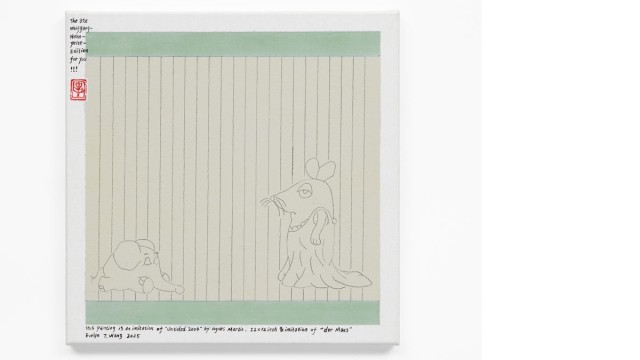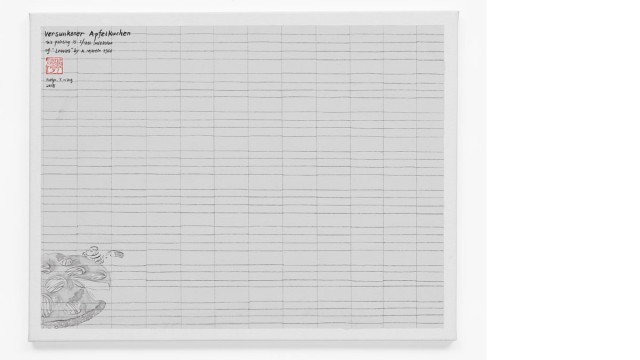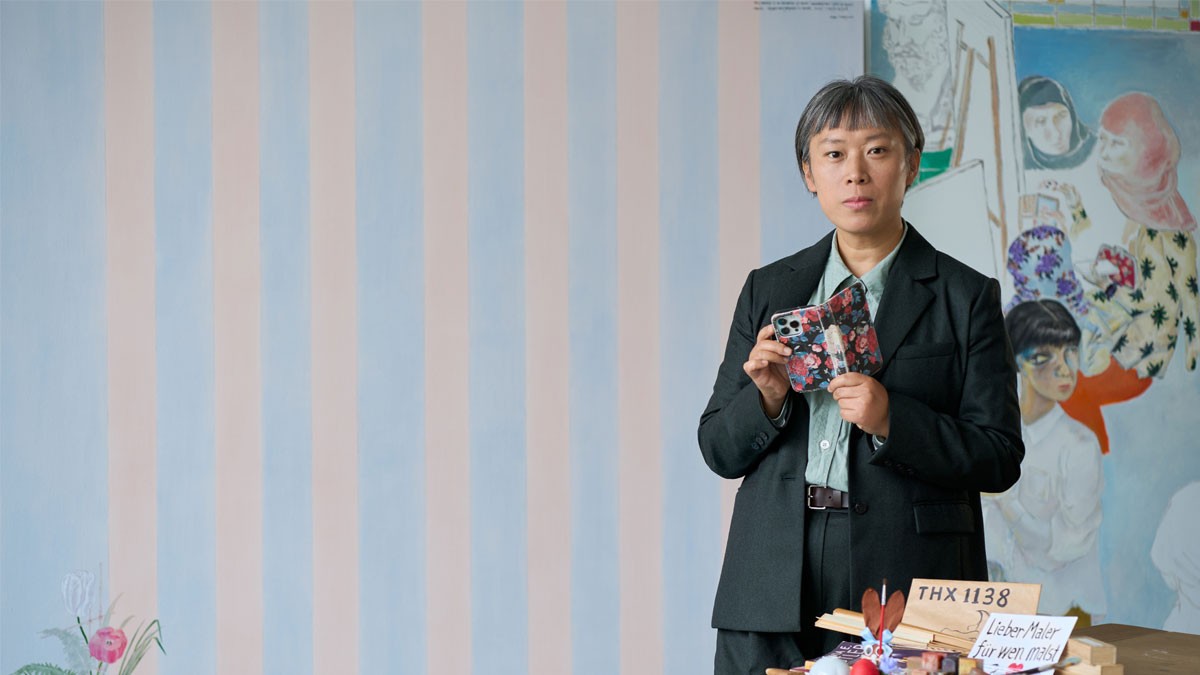In a smooth transition
The work of Rotterdam-based artist Evelyn Taocheng Wang ranges from drawing and painting to calligraphy, performance and installation. She draws on her experiences as an immigrant artist, born in China in 1981 and educated in Germany. After studying traditional Chinese art, classical Chinese literature, graphic design and visual communication in Nanjing, Wang completed her Master of Fine Arts at the Städelschule in Frankfurt and attended De Ateliers in Amsterdam.
Since participating in the main exhibition in the Central Pavilion at the 2024 Venice Biennale, she has become known to a wider international audience. She sees her main theme of identity as an evolving, multi-layered concept and links aspects of her life with art-historical considerations that raise questions about the consequences of migration and globalisation in today's world: How does cultural imprinting influence self-perception and the perception of others? How are identity and the perception of the body constituted?

Evelyn Taocheng Wang has created a special edition entitled ‘Die Mode’ (Fashion) for the 2025 Wolfgang Hahn Prize. Photo: Andong Zheng © Evelyn Taocheng Wang
Emotions and poetry
‘For me, as a contemporary artist, dealing with autobiographical material is very important,’ she says. ‘It's also vulnerable, because the public participates in it and it can become very personal. But I think art is always personal.’ Wang combines observations on immigration and belonging with reflections on other aspects that are crucial to an individual's self-definition, such as gender and class representation or a sense of fashion and style. She references art history, language acquisition and literature from Virginia Woolf to Ingeborg Bachmann. In her paintings, she combines muted tones, delicate line drawings and written words to create compositions that interweave memories with her imagination. The result is fragmentary narratives full of emotion and poetry, featuring women, trees and flowers.
One of Wang's primary influences is Canadian-born American artist Agnes Martin. ‘Her work reminds me that a painting can consist of different layers, each of which can be made to shine, which in turn reminds me of my early watercolour painting,’ says Wang. ‘Martin's work inspires me to mix my oil paints thinly, almost in a way that reminds me of make-up and has something feminine about it.’ This inspiration is evident in Wang's use of abstract grids as the basis for her figurations, such as still lifes of pak choi, peaches and mandarins. The objects balance between the lines and explore form and space. ‘I paint them from memory, which means I don't have a research phase, but rely on an impression,’ says Wang about the creative process. Other influences include history painting, expressionism and romanticism, alongside conceptual questions, such as what art actually needs in order to exist.

The new work, Cakes and One of Twelfth of Agnes Martin Imitation – September, 2025, is part of a series of 12 paintings. Photo: Andong Zheng © Evelyn Taocheng Wang
Clothing as material
Wang is committed to blending the everyday with the institutional, as well as high and low culture. ‘As an artist, I mix the classical with new forms, new words, new body cultures, new national identities.’ She sometimes works with fabrics, exploring how clothing defines and changes a person's personality, for example. Her working process also involves a fluid transition between digital and analogue levels. For the installation ‘Spreading Elegance,’ for example, she offered her friends on Facebook garments from her collection of the Agnès B. label in exchange for handwritten letters, in order to present them in table display cases and place them next to her own photos and drawings of the corresponding garments. The work reflects a fluid process of borrowing, exchanging and transforming into something new, leaving room for the idea that notions of elegance vary from person to person and from culture to culture. Although Wang's work is characterised by contradictions – between the use of traditional and modern techniques, individual narrative and collective memory, and the fusion of Eastern and Western references – she celebrates the possibility of a reality that benefits from the free flow of imagination.
Autor: Alexandra Wach

